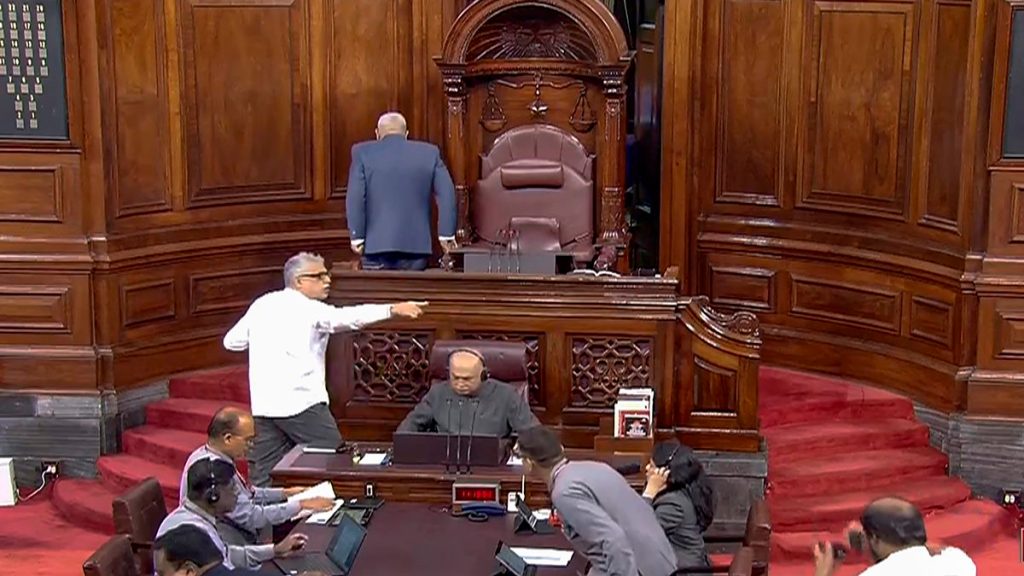On the opening day of the Monsoon Session of Parliament on Thursday, Leader of Opposition in the Rajya Sabha and Congress president Mallikarjun Kharge demanded a discussion on the violence in Manipur, and issued a notice under Rule 267. This Rule of the Rajya Sabha pertains to the suspension of a day’s business for taking up an issue.
Kharge’s appeal was also supported by Trinamool’s Derek O’Brien, who said the discussion on the Manipur situation should be taken up under Rule 267. Several opposition members had given notices under Rule 267, demanding a discussion on Manipur violence.
As witnessed in the earlier sessions of the Parliament, Rule 267 has emerged as a thorny issue, as no notice given by Opposition parties under Rule 267 has been accepted in the recent past. Earlier, in the Winter Session of the Parliament, Rajya Sabha Chairman Jagdeep Dhankhar said that he would invoke Rule 267 “on merit”.
What is Rule 267?
According to the Rules of Procedure and Conduct of Business in the Council of States (Rajya Sabha), under Rule 267, “Any member, may, with the consent of the Chairman, move that any rule may be suspended in its application to a motion related to the business listed before the Council of that day and if the motion is carried, the rule in question shall be suspended for the time being.”
On Thursday, Kharge said he has been demanding a discussion on the Manipur issue since morning but has not been allowed to despite giving notice in advance. “I have made my full efforts to attract your attention and given notice but unfortunately, I am not allowed to raise this (rule) 267…,” he said.
Later, Kharge’s remarks made in the House regarding the Manipur video, which showed two women being paraded naked and sexually assaulted, and the Prime Minister, were expunged from the records by Dhankhar.
The Rajya Sabha was eventually adjourned for the day.
The Opposition leaders have oft complained that notices under Rule 267 are not being taken up.
Last year, O’Brien in an article in The Indian Express argued that after 2016, when the House discussed demonetisation, no notice under Rule 267 had been allowed, whereas earlier, Rajya Sabha chairmen would accept such notices. Meanwhile, P Chidambaram, too, in an article in IE argued that “as far as India’s Parliament is concerned, there is no matter of “urgent public importance” that requires to be discussed setting aside the business of the day.”


